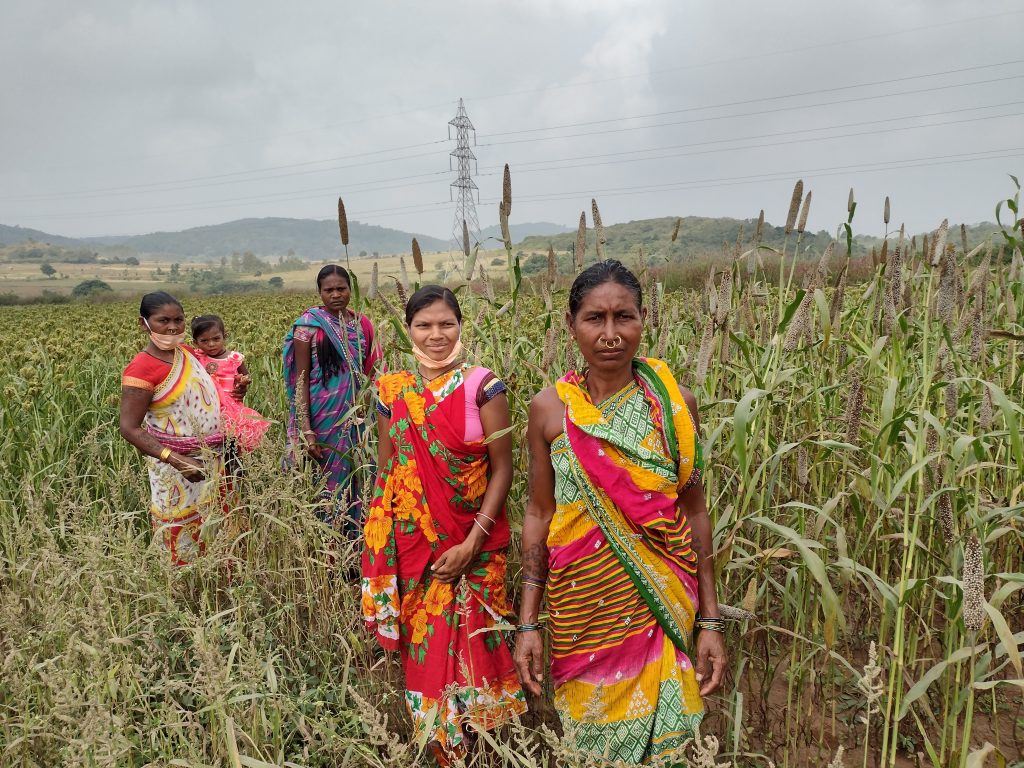Drought is one of the biggest dangers to sustainable development, and the United Nations predict that by 2050, more than 75 percent of the world’s population could be impacted by droughts[1]. Thus, every year on June 17, the international community unites to observe Desertification and Drought Day to create awareness on combating land degradation, desertification, and drought.
The theme for 2023 is ‘Her Land. Her Rights’ and aims to highlight the pivotal role of women’s’ land rights in attaining gender equality and land degradation neutrality by 2030. Despite having a significant stake in the health of the land, women frequently lack authority over it. Women especially those from rural/tribal backgrounds confront tremendous obstacles in obtaining land rights anywhere in the world, which limits their capacity to flourish and succeed. They continue to be subject to discriminatory laws and practices that restrict their ability to inherit and gain access to resources.
Gender equality and land degradation
There is a notable correlation between gender equality and land degradation. The 2019 IPCC reports that across the globe, the negative effects of desertification, land degradation, and drought are borne mostly by women who highly depend on agricultural livelihoods[2]. Orphan crops for sustainable food and nutrition security by Prof M S Swaminathan notes that women encounter the bulk of water scarcity, food insecurity, and loss of livelihoods, often with additional challenges due to discriminatory social norms, insufficient access to resources, and unequal land rights.
Dr Sara Ahmed’s Gender Issues in Agriculture and Rural Livelihoods states that “Essentially there are three types of arguments underlying the importance of land rights for women: welfare, efficiency and empowerment.” To expound on this statement, welfare emphasises the role of land rights in improving the overall well-being and living conditions of women; efficiency focuses on the economic benefits that arise from granting land rights to women; empowerment centres on the transformative potential of land rights for women. Recognising the importance of gender relations in agriculture, MSSRF set up the Gender and Grassroots Institutions cross-cut in 1993 as an initiative to integrate gender issues across research programmes.

Campaigning for #HerLand
The United Nations Convention to Combat Desertification announced the launch of a global social media campaign called #HerLand to recognise women and girls for their leadership, excellence, and efforts in sustainable land management. The campaign promises to amplify the voices of women and girls who are affected by desertification, land degradation, and drought; and to mobilise support on a global scale for the advancement of women’s and girls’ land rights.
The observance of Desertification and Drought Day serves as a valuable platform for acknowledging the crucial interconnections between women’s land rights, gender equality, and sustainable land management. Through concerted efforts to address the challenges encountered by women. We can promote a more just and sustainable future where women are key actors in combating desertification, land degradation, and drought while enjoying their rightful rights and opportunities. Together, we can establish a world wherein “Her Land. Her Rights” are safeguarded and celebrated.
[1] Drought in numbers, 2022
[2] IPCC, 2019: Climate Change and Land: an IPCC special report on climate change, desertification, land degradation, sustainable land management, food security, and greenhouse gas fluxes in terrestrial ecosystems
Edited by: Ms Sangeetha Rajeesh
Photo credits: MSSRF

